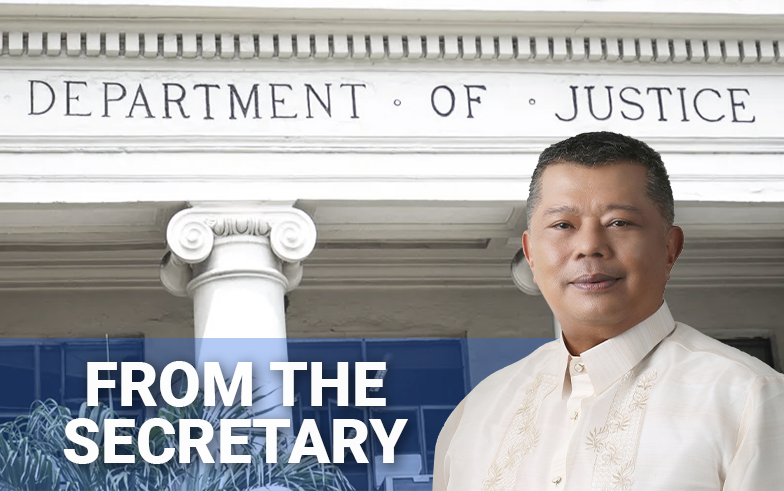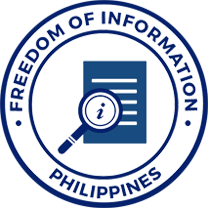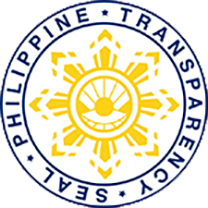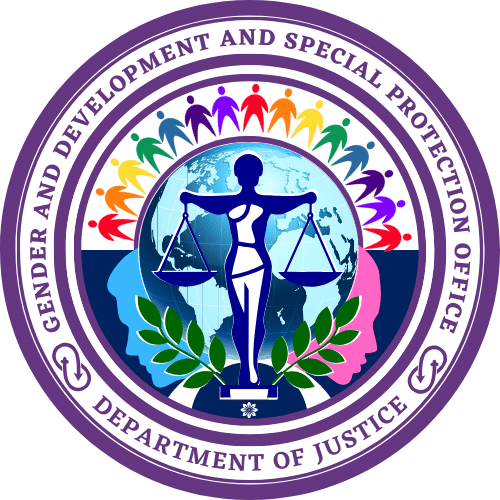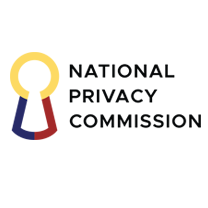THE CRIMINAL CODE OF THE PHILIPPINES (Draft)
----------------------------------------------------------------
H.B. No. 2300 Philippine Code of Crimes
------------------------------------------------------------------
DEPARTMENT OF JUSTICE - CRIMINAL CODE COMMITTEE
EXECUTIVE SUMMARY
In line with His Excellency’s directive in 2010 to review existing laws to ensure consistency, the Department of Justice constituted the Criminal Code Committee (“CCC”). This inter-agency body’s mandate is to bring together criminal justice stakeholders to review all existing penal laws of the country and to draft a simple, modern, and organic Criminal Code of the Philippines.
The CCC, with support from the Hanns Seidel Foundation of Germany, is composed of representatives from the executive, legislative and judicial branches of government. Through regular meetings, consultations with stakeholders from various sectors, in-depth research and international exchanges, the CCC draws from best practices in the world and considers the precepts of the two great legal traditions – common law and civil law.
------------------------------------------------------------------
CRIMINAL CODE COMMITTEE POSTS SIGNIFICANT MILESTONES AFTER FIRST THREE MONTHS OF WORK
For the past three months, experts from different government agencies and civil society groups constituting the Criminal Code Committee have convened regularly and engaged in insightful discussions towards coming up with a draft of a new Criminal Code.
From the outset, the Criminal Code Committee has adhered to the principle that the most effective way of ensuring the responsiveness of our criminal justice system is to make our penal statutes relevant and meaningful to the people. Thus, the Criminal Code being drafted is envisioned to represent a wealth of knowledge and experience culled from all sectors of society, as well as the intellectual ferment of experts from a broad range of disciplines – law, psychology, criminology, social work, national security, and business, to name a few. Ultimately, the Criminal Code will not solely be a lawyer’s document, but a statute which reflects the contemporary mores and values of the Filipino people.
Since its inception in April 2011, the members of the Criminal Code Committee have been working tirelessly to prove that they are equal to their enormous task. The following are only some of the significant milestones that the Criminal Code Committee has achieved during its first three months of work:
- Completion of a comprehensive project plan detailing all the activities of the Criminal Code Committee; its objectives, deliverables and working schedule; funding requirements and plans of action.
- Constitution of the Committee Secretariat which currently serves as the steering unit of the Criminal Code Committee performing research, documentation and administrative functions.
- Institution of operational procedures and systems for research, reporting and communications within the Criminal Code Committee. All proceedings of the Criminal Code Committee are governed by the Chatham House Rule.
- Institution of an internal scoring system to monitor the attendance, participation and progress of submissions of individual Criminal Code Committee members.
- Setting up of an official e-mail account ([email protected]) and website (may be accessed through the DOJ’s homepage at www.doj.gov.ph).
- Conduct of nine weekly (9) Experts Group Meetings, where members of the Criminal Code Committee shared insights and solutions on general principles of criminal law, problem areas in the various stages of the criminal justice system, and international best practices. The Criminal Code Committee has covered topics as, among others:
- The philosophy, structure and jurisdictional applicability of the Criminal Code;
- The concepts of modifying circumstances, civil liability, and minimum age of criminal responsibility;
- Persons criminally liable and the concept of conspiracy; and
- Preliminary considerations regarding crimes involving national security and fraud, gender crimes, and contempt and obstruction of justice.
- Conduct of a special lecture on criminal legal philosophy by Prof. Henning Glaser of the German-Southeast Asian Center of Excellence for Public Policy and Governance (Common Institute of the Universities of Frankfurt, Munster, Passau and Thammasat).
For the rest of the year, aside from the weekly Experts Group Meeting, the Criminal Code Committee has also lined up other activities, including reports on the penal codes of foreign jurisdictions from which international best practices may be culled (e.g., Spain, Australia, Germany, Switzerland and the United States). The Criminal Code Committee also expects to stage a series of Focus Group Discussions (“FGDs”) on specific contentious criminal law issues where opinions of expert law practitioners and specialists in allied professions (e.g., criminology, psychology, social work, etc.) will be solicited.
Armed with commitment and dedication, the Criminal Code Committee is on track in coming up with the draft of a new Criminal Code that will hopefully improve the administration of justice in the country.
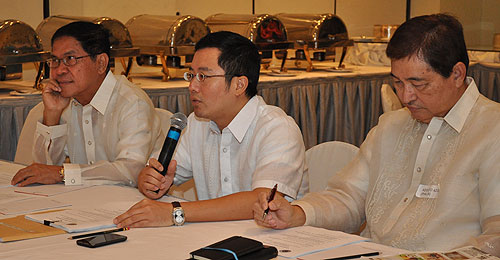
Criminal Code Committee Chair Asst. Secretary Geronimo L. Sy presides over the Experts Group Meeting. Beside him are Retired Sandiganbayan Presiding Justice Edilberto Sandoval (Left) and Retired Supreme Court Justice and Incumbent Philippine Judicial Academy Chancellor Adolfo Azcuna (Right).
.jpg)
The Experts Group Meeting last 15 July 2011, during which the Corrections Cluster submitted to the body several proposals in improving the administration of the country’s penology, parole and probation system. The meeting was also attended by observers from the American Bar Association’s Rule of Law Initiative, the International Committee of the Red Cross and the Association of Law Students of the Philippines.
DOJ Begins Criminal Code Review
Justice Secretary Leila M. De Lima announced today the formation of an experts group to undertake the comprehensive review of Revised Penal Code, as amended.
Many of our systemic justice issues can be traced to our antiquated general penal law passed way back in 1932 when we were under American occupation, she said. Over the years, there have been dramatic changes in the nature and types of crime and there is an urgent need to craft a truly organic, Filipino criminal code attuned to our values and norms, she added.
The Criminal Code Committee will be spearheaded by key justice sector agencies including the Supreme Court, Philippine National Police, National Bureau of Investigation, Bureau of Immigration, Public Attorney's Office, Office of the Government Corporate Counsel, Office of the Solicitor General, Parole and Probation Administration and Land Registration Authority.
Major institutions that will significantly contribute to the effort include the Integrated Bar of the Philippines (IBP), Philippine Judicial Academy (PhilJA), Philippine Judges Association, Philippine Association of Law Schools and the Regional Prosecutors Council, among others.
The Senate and House Committees on Justice are also represented in the Committee. It will engage resource persons including doctors, psychologists, economics, criminologists and forensic scientists aside from legal luminaries.
It will be multi-disciplinary approach and will involve stakeholders through fora, surveys and focus group discussions to harmonize provisions, echoed Justice Assistant Secretary Geronimo L. Sy.
The project is supported by the Hanns Seidel Foundation.
